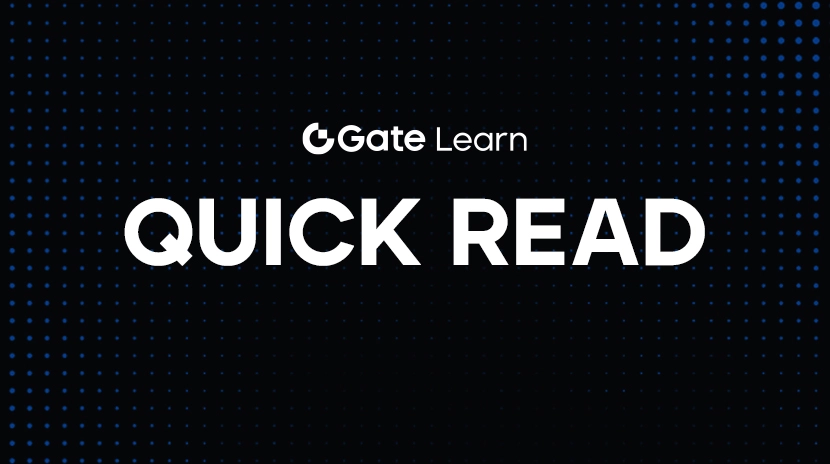Crypto Alpha Competition Heats Up: Is Gate’s “Low-Cost Comeback” Strategy a Binance Disruptor?
The current crypto market is recovering, but making money is becoming increasingly “difficult”. Many users are starting to turn to the direction of “doing tasks to earn airdrops”. However, as platforms like Binance and OKX are increasingly competitive, Gate Alpha’s breakout has caught the attention of many old users—trade 200U, earn nearly 10U in rewards, and can even stack points blind boxes?
Who is truly the “lowest cost, highest return” Alpha platform? We will analyze this “hidden competition” from multiple perspectives.
1. FOMO sentiment resurgence, airdrops become the main battlefield for users to recover losses.
Since the beginning of this year, the Federal Reserve’s expectations for interest rate cuts have frequently reversed, leading to increased volatility in the crypto market. However, after BTC returned to the $70,000 mark in early June, the overall market’s “greed index” has continued to rise.
At the same time, a plethora of airdrop-type projects are emerging, from ZKSync to LayerZero, with “airdrop workers” becoming active again on major Alpha platforms. In this competition, “efficiency” and “return rate” have become important criteria for users to evaluate.
2. Regulatory compliance is strengthened, and platform incentive strategies become “smarter”.
Under the tightening regulations in Europe and America, platforms can no longer guide users through “unlimited liquidity” or “mindless brushing of volume”. Taking Binance Alpha as an example, more tasks are based on a large number of trading behaviors, and users must actually incur costs to maintain their points or levels, making the cost-effectiveness increasingly diminish.
In contrast, Gate’s strategy is clearly more refined—guiding users to “try at low cost,” and then introducing deeper participation through a points system. This is a smarter operational method that aligns with regulatory guidance and is more favored by users.
3. The cost is only 1.7U, and the Gate Alpha points earnings far exceed the industry average.
According to actual measurements, on the Gate Alpha platform:
- Users only need to trade 200 USDT, and the transaction fee cost is less than 1.7U.
- You can get a direct investment reward of about 10U (approximately 5 times the cost)
- The generated points can also participate in the “Special Airdrop for Points Festival,” sharing a prize pool of 300,000 USD.
- You can also exchange token mystery boxes worth 50~100 USDT each month, and it does not consume points.
In comparison, Binance Alpha focuses more on pure points-based tasks, where users often need to invest a large amount of trading costs just to earn virtual points, and there is still uncertainty about whether they can be redeemed for rewards later.
This has led many users to turn to the “low-threshold and high-efficiency” Gate Alpha points model.
4. Alpha is not just about airdrops; points are also “appreciating”.
Don’t underestimate these points; they actually represent the “monetization” of user participation and the platform’s trust mechanism. In Gate Alpha, points can be exchanged for rewards, participate in lotteries, and may also gain more priority for platform tasks.
Currently, each event of Gate Alpha has an independent incentive system: projects like ZORO, IDOL, SKATE correspond to different reward distributions and blind box contents. The more points you have, the more chances you may have to receive extra airdrops.
If Binance Alpha is “promoting activity through brushing,” then Gate Alpha is about “giving candy while doing”—this is the true long-term strategy that attracts loyal users.
5. How should we act? Don’t wait until others have snatched up the rewards before you remember yourself.
From the rebound of BTC trends, to the intensification of competition within the platform, and then to the structural changes of airdrop benefits, now is a critical juncture for repositioning Alpha strategies.
For ordinary users, it’s not about going to great lengths to complete Alpha tasks, but rather choosing platforms with lower thresholds and more controllable returns to take the lead. The advantage of Gate Alpha lies precisely in this:
✅ Transaction tasks completed easily
✅ The cost is very low, you can participate for just a few dollars.
✅ Rewards are credited in real-time, and points can also appreciate in value.
The next round of opportunities belongs to those who are willing to be frugal.
Gate Alpha is breaking the old paradigm of “spending money to earn points.”
In the past, “Alpha” was often criticized as “a paradise for profit seekers,” but under Gate’s design, it has started to become a truly sustainable and profitable user incentive system. Whether you are an experienced player or a newcomer, just a small participation can yield returns across multiple dimensions.
What’s the next step? Click to enter the Gate Alpha event page, starting from 200U, secure a profit of 10U first, and you can “slowly cash out” the remaining points.
Don’t wait for the hype to pass before regretting not acting sooner.
Declaration:
- This article is reproduced from [Baijiahao] The copyright belongs to the original author Weibo San Xiao Huo JuiIf there are any objections to the reprint, please contact.Gate Learn TeamThe team will handle it as quickly as possible according to the relevant procedures.
- Disclaimer: The views and opinions expressed in this article are solely those of the author and do not constitute any investment advice.
- Other language versions of the article are translated by the Gate Learn team, unless otherwise mentioned.GateUnder such circumstances, it is prohibited to copy, disseminate, or plagiarize translated articles.
Share
Content





